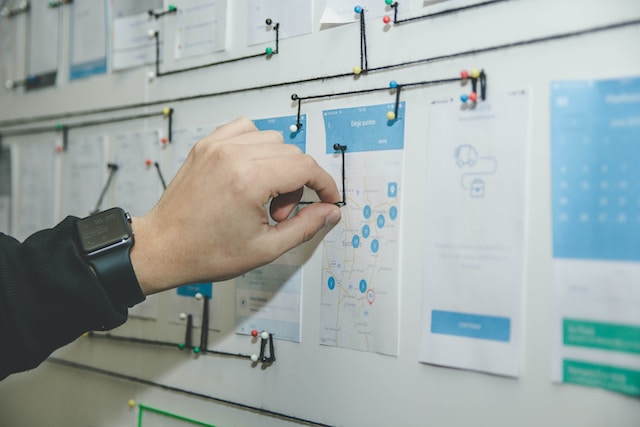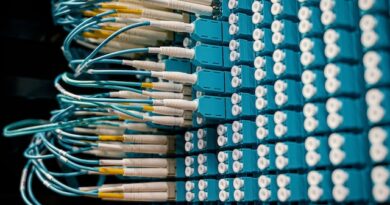Electrical Testing in Faridabad
Introduction
In the modern world, electrical systems are an integral part of our daily lives. Whether it’s our homes, offices, or industries, electricity powers our world. However, ensuring the safety and efficiency of electrical systems is of utmost importance. That’s where electrical testing comes into play. In this article, we will explore the significance of electrical testing in Faridabad, a bustling industrial city in India. From understanding the importance of electrical testing to its various types and benefits, we will delve into the world of electrical testing.
Table of Contents
- Importance of Electrical Testing
- Types of Electrical Testing
- Voltage Testing
- Insulation Testing
- Continuity Testing
- Earth Fault Testing
- Benefits of Electrical Testing
- Electrical Testing Standards
- Hiring Professional Electrical Testing Services
- Common Electrical Testing Equipment
- Ensuring Safety in Electrical Testing
- Challenges in Electrical Testing
- Future Trends in Electrical Testing
- Conclusion
- FAQs
Importance of Electrical Testing
Electrical testing plays a crucial role in identifying potential faults, ensuring the safety of electrical systems, and minimizing the risk of electrical hazards. By conducting regular testing, technicians can detect issues early on and prevent accidents or equipment failures. Electrical testing helps in verifying the performance, functionality, and compliance of electrical systems with safety standards and regulations.
Types of Electrical Testing
Voltage Testing
Voltage testing involves measuring the voltage levels within an electrical system. It ensures that the voltage is within the specified range and helps identify any overvoltage or undervoltage conditions. This testing is crucial for maintaining the safety and optimal performance of electrical equipment.
Insulation Testing
Insulation testing assesses the integrity of the electrical insulation in wires, cables, and equipment. By measuring the resistance to current flow, technicians can determine if the insulation is adequate or if there are any potential leakage paths. Insulation testing helps prevent electrical shocks, short circuits, and equipment damage caused by insulation breakdown.
Continuity Testing
Continuity testing is performed to check the uninterrupted flow of current in a circuit. It verifies the electrical connections, ensuring that there are no open circuits or loose connections. This testing is essential to avoid electrical failures, overheating, and fire hazards.
Earth Fault Testing
Earth fault testing identifies any faults in the earthing system of electrical installations. It ensures that the earthing is effective in providing a safe path for electrical faults to dissipate. By conducting earth fault testing, technicians can prevent electric shocks and protect equipment from damage caused by faulty earthing.
Benefits of Electrical Testing
Proper electrical testing offers numerous benefits:
- Enhanced Safety: Regular testing helps identify potential electrical hazards and ensures the safety of people and property.
- Increased Reliability: Testing detects faults and defects early, reducing the risk of equipment failure and minimizing downtime.
- Compliance with Regulations: Electrical testing ensures adherence to safety standards and regulatory requirements.
- Improved Energy Efficiency: By identifying inefficiencies, testing helps optimize electrical systems, leading to energy savings.
- Cost Savings: Early detection of faults through testing prevents expensive repairs and replacements in the future.
Electrical Testing Standards
Electrical testing follows industry standards and guidelines to ensure consistency and reliability. Some widely recognized standards include:
- International Electrotechnical Commission (IEC)
- Institute of Electrical and Electronics Engineers (IEEE)
- National Electrical Manufacturers Association (NEMA)
- British Standards Institution (BSI)
Adhering to these standards helps maintain the quality and safety of electrical systems.
Hiring Professional Electrical Testing Services
To ensure accurate and reliable testing, it is advisable to hire professional electrical testing services. Experienced technicians possess the knowledge, skills, and specialized equipment required for comprehensive testing. They can provide detailed reports and recommendations based on the test results, helping you make informed decisions regarding your electrical systems.
Common Electrical Testing Equipment
Electrical testing involves the use of various equipment, including:
- Multimeters: For measuring voltage, current, and resistance.
- Insulation Resistance Testers: To evaluate the insulation resistance of cables and equipment.
- Earth Testers: Used to measure earth resistance and verify the effectiveness of the earthing system.
- Power Quality Analyzers: For analyzing and monitoring the quality of electrical power.
- Thermal Imaging Cameras: To detect abnormal temperature variations and potential electrical issues.
These tools assist technicians in conducting accurate and comprehensive electrical testing.
Ensuring Safety in Electrical Testing
While performing electrical testing, safety precautions should always be a top priority. Some key safety measures include:
- Disconnecting Power: Before conducting any tests, ensure that the power supply is switched off and equipment is de-energized.
- Proper Personal Protective Equipment (PPE): Technicians should wear appropriate PPE, including gloves, safety goggles, and insulated clothing.
- Testing in Controlled Environments: Testing should be conducted in controlled environments to minimize risks and ensure accurate results.
- Regular Calibration: Testing equipment should be regularly calibrated and maintained to ensure accurate readings.
- Adhering to Safety Standards: Follow safety standards and guidelines to minimize the risk of electrical accidents.
By prioritizing safety, technicians can conduct electrical testing with minimal risks.
Challenges in Electrical Testing
Electrical testing poses certain challenges, including:
- Complex Systems: Modern electrical systems can be intricate and require specialized knowledge and equipment for testing.
- Access Limitations: Some electrical components may be located in hard-to-reach areas, making testing challenging.
- Time Constraints: Testing can be time-consuming, especially for large-scale installations, leading to potential disruptions.
- Interference: External factors such as electromagnetic interference can affect testing accuracy.
Overcoming these challenges requires expertise, planning, and effective strategies.
Future Trends in Electrical Testing
As technology advances, the field of electrical testing continues to evolve. Some future trends include:
- Smart Testing: Integration of Internet of Things (IoT) and artificial intelligence for automated testing and real-time monitoring.
- Predictive Maintenance: Utilizing data analytics to predict equipment failures and schedule maintenance proactively.
- Virtual Reality (VR) Simulations: Using VR technology for training technicians and simulating testing scenarios.
- Wireless Testing: Advancements in wireless technology for remote testing and monitoring.
These trends are set to revolutionize electrical testing, improving efficiency and accuracy.
Conclusion
Electrical testing is a critical aspect of ensuring the safety and efficiency of electrical systems. By conducting regular testing, potential faults can be identified, risks minimized, and performance optimized. In Faridabad, a city driven by industrial growth, electrical testing holds immense significance. To maintain safe and reliable electrical installations, it is essential to prioritize regular testing and adhere to the relevant standards. By doing so, we can create a secure environment for both individuals and businesses.
FAQs
- What is the purpose of electrical testing? Electrical testing is conducted to identify potential faults, ensure safety, and verify compliance with standards.
- How often should electrical testing be performed? The frequency of electrical testing depends on various factors, including the type of installation and regulatory requirements. It is recommended to consult professionals for guidance.




